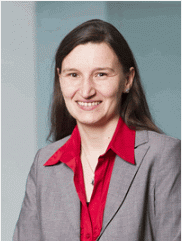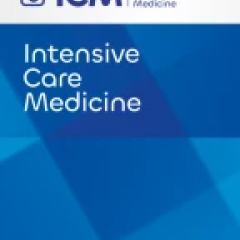 Associate Professor Cornelia Landersdorfer currently leads a translational research program and laboratory at Monash Institute of Pharmaceutical Sciences. Her research program integrates experimental microbiological and molecular studies with mathematical modelling to optimise dosing, with a focus on antibiotics.
Associate Professor Cornelia Landersdorfer currently leads a translational research program and laboratory at Monash Institute of Pharmaceutical Sciences. Her research program integrates experimental microbiological and molecular studies with mathematical modelling to optimise dosing, with a focus on antibiotics.
Cornelia has been part of collaborations with researchers from CRE RESPOND for more than a decade, and it has been a very rewarding experience working alongside the team including Professors Roberts, Lipman and Paterson.
Antimicrobial pharmacokinetics/pharmacodynamics (PK/PD) is about saving patients' lives by developing optimised treatments: the right antibiotic at the right dose and the right time. Her research involves designing innovative optimised antibiotic combination dosing strategies to combat multidrug-resistant bacteria that can cause life threatening infections.
We congratulate her on the following recently published papers:
Agyeman AA … Landersdorfer CB. Ceftolozane/tazobactam plus tobramycin against free-floating and biofilm bacteria of hypermutable Pseudomonas aeruginosa epidemic strains: resistance mechanisms and synergistic activity: Running title: Ceftolozane/tazobactam plus tobramycin against Pseudomonas biofilm. Int J Antimicrob Agents. 2023 Jun 12:106887. doi: 10.1016/j.ijantimicag.2023.106887.
Landersdorfer CB, et al. Clinical pharmacological considerations in an early intravenous to oral antibiotic switch: are barriers real or simply perceived? Clin Microbiol Infect. 2023 Apr 12:S1198-743X(23)00179-9. doi: 10.1016/j.cmi.2023.04.009.
Cornelia studied pharmacy at the University of Regensburg in Germany, then for her pre-registration year moved to London, UK, to complete six months of training at Charing Cross and Hammersmith Hospitals (Imperial College Healthcare NHS Trust). This work inspired her to pursue a PhD at the Institute for Biomedical and Pharmaceutical Research (IBMP, Nürnberg), and the Julius Maximilian University of Würzburg, Germany. Her PhD involved clinical pharmacokinetic studies, bioanalysis and mathematical modelling, to assess drug-drug interactions, bone penetration and pharmacodynamic target attainment of antibiotics.
Following this, Cornelia moved to the US to complete a postdoctoral fellowship in PK/PD modelling of antidiabetic agents and other drugs at the State University of New York in Buffalo; then worked as a Scientist on experimental studies and mathematical modelling, at Ordway Research Institute and the Institute for Clinical Pharmacodynamics.
In 2011, she joined the Monash Institute of Pharmaceutical Sciences in Melbourne, Australia. Following the award of a NHMRC Career Development Fellowship, she established her independent research group and in 2016 was appointed as a Senior Lecturer and in 2020 promoted to Associate Professor. In 2018, Cornelia received the Georgina Sweet Award for Women in Quantitative Biomedical Science, and in 2022 an Australian Award for University Teaching. Whilst her career has included many international moves, Cornelia sees these also as opportunities.
Cornelia is energised when her research leads to clinical impact and enables improved treatments for patients. Examples include informing the approval of lithium for children and adolescents with bipolar disorder in collaboration with the NIH and FDA, the approval of a new dosing regimen for IgG replacement therapy in collaboration with CSL Behring that was subsequently found to have improved patient satisfaction in clinical practice, and the first scientifically based dosing regimens for polymyxin B in critically ill patients. She treasures the success of her former PhD students and advances in their careers.
Outside of work, Cornelia enjoys connecting with nature, bike riding and hiking, as well as visiting art galleries.
Cornelia advises future researchers that “It is very important to find good mentors and a supportive working environment and be passionate about science and research.”
We greatly value having Cornelia as part of the CRE RESPOND team and look forward to her continued contribution.



